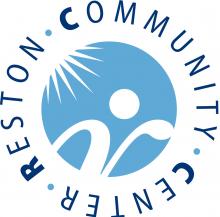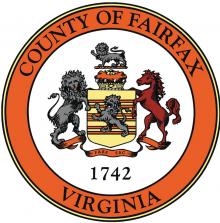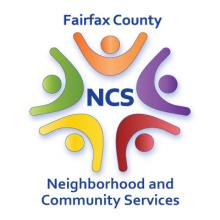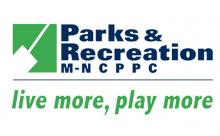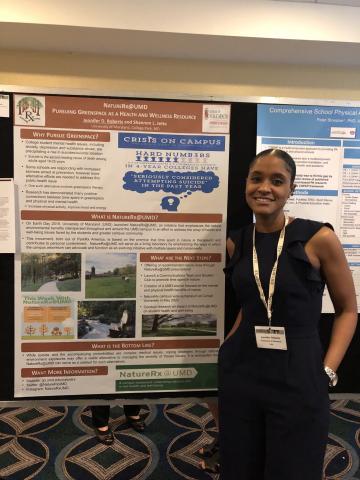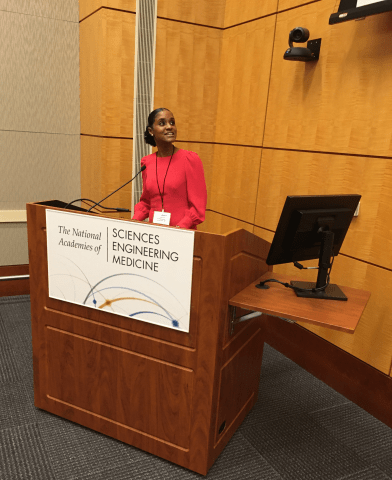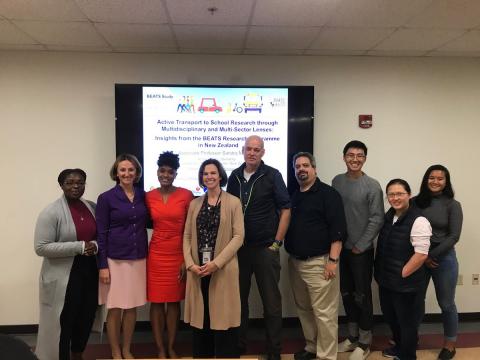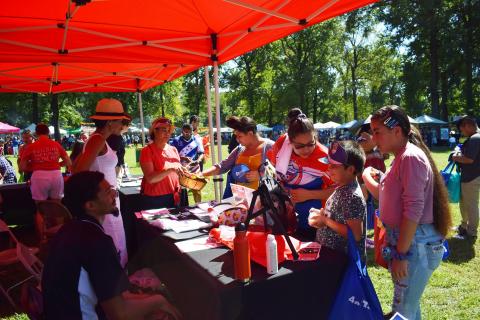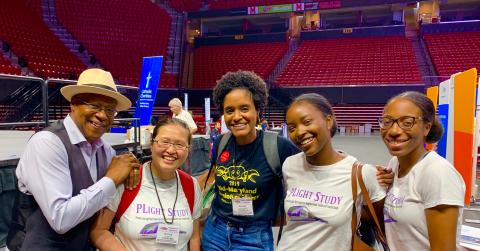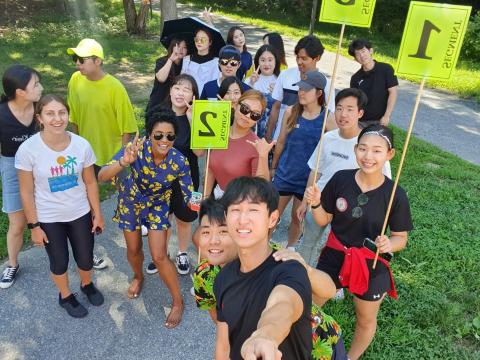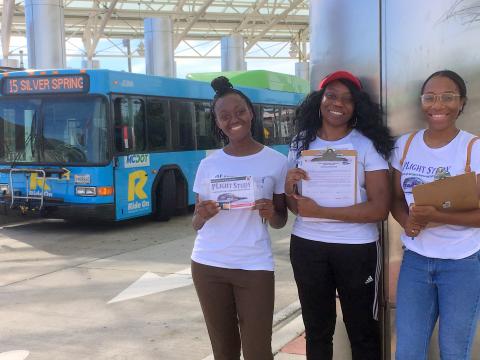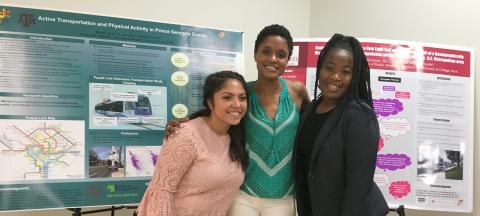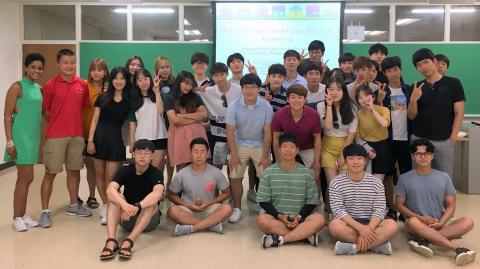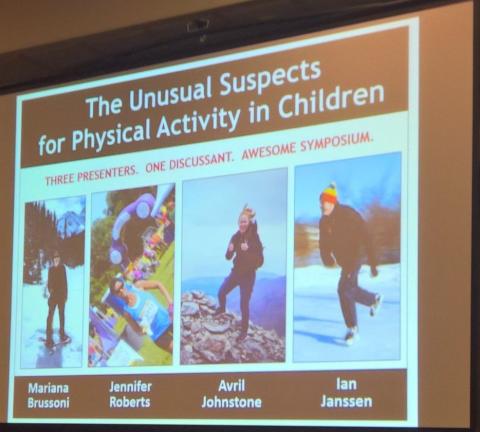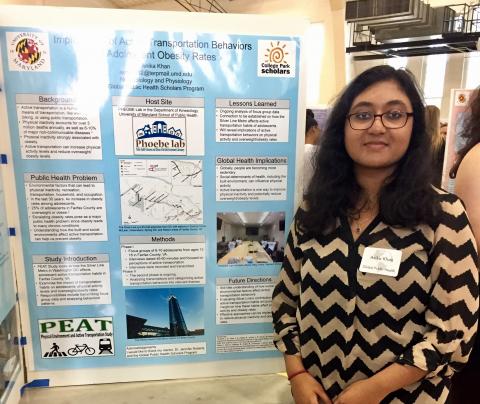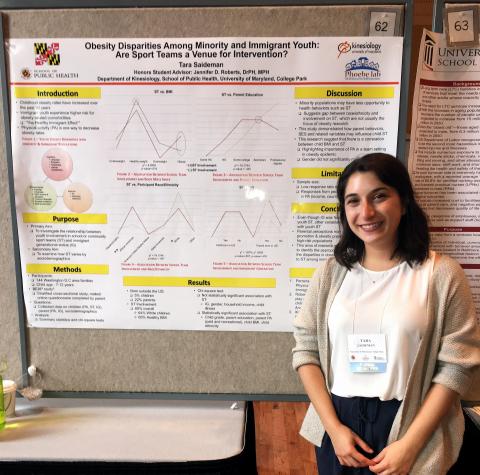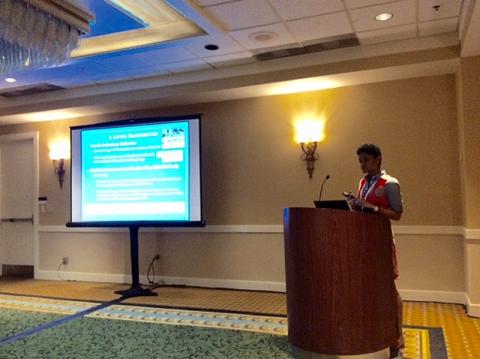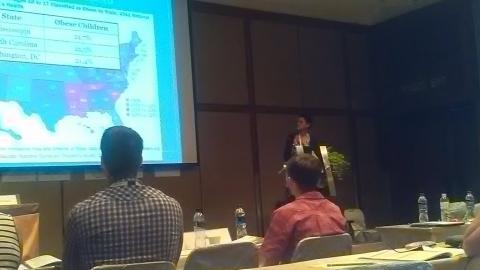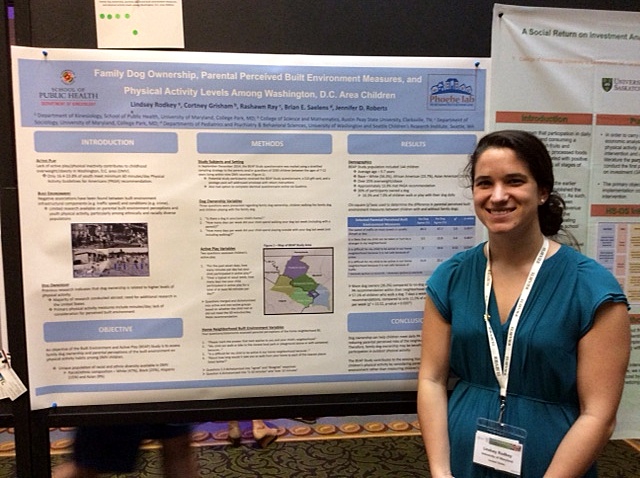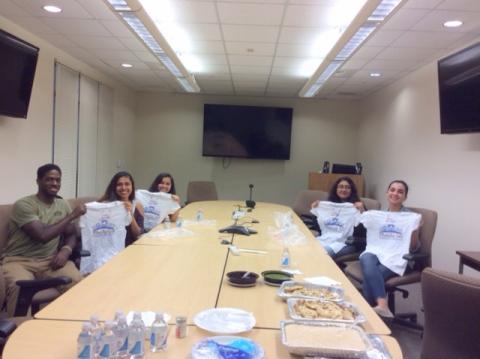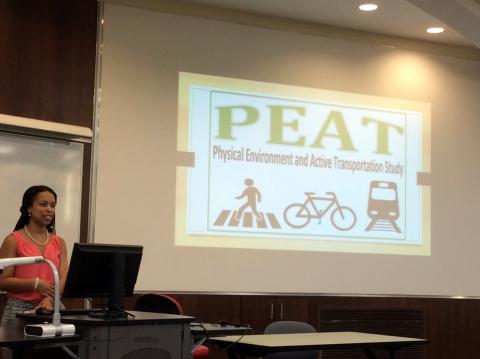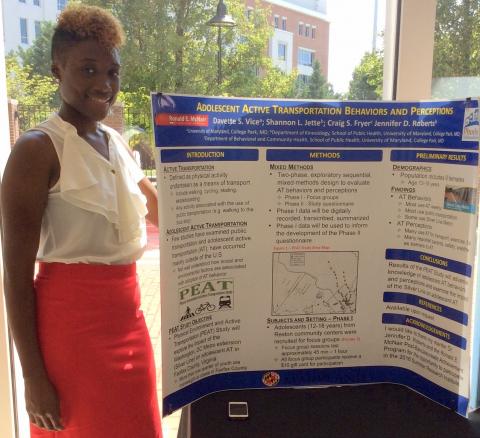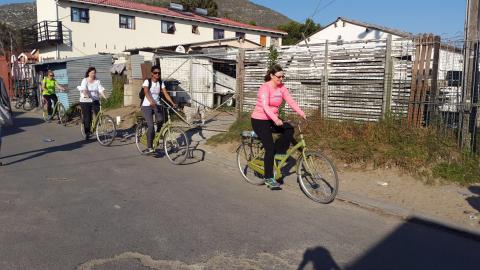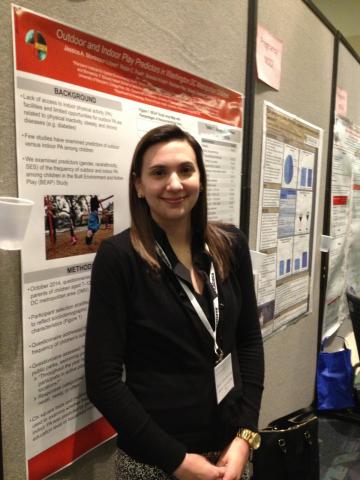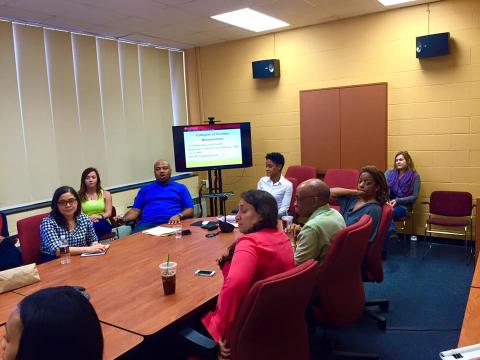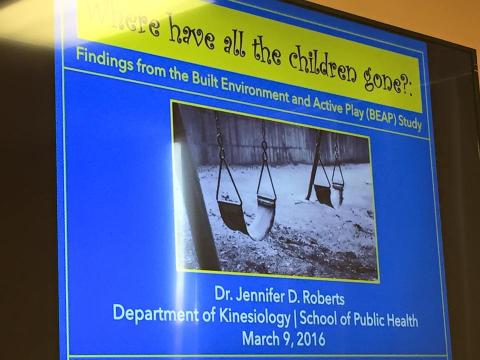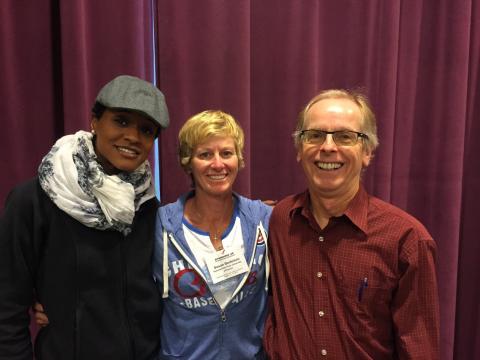Understanding Built Environments in Our Neighborhoods and Communities
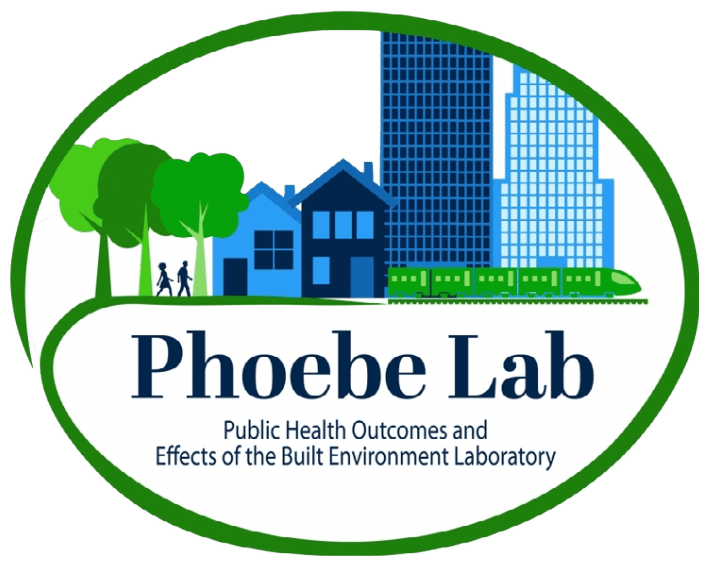
Welcome to the home of the Public Health Outcomes and Effects of the Built Environment (PHOEBE) Laboratory. The PHOEBE Laboratory is housed in the Department of Kinesiology within the University of Maryland School of Public Health.
Department: Kinesiology
Room Number: 2136
Director: Jennifer D. Roberts
Office Phone Number: (301) 405-7748
Email: jenrob@umd.edu
Where we live, work and play can affect our health.
Our mission is to gain an improved understanding of how our built environments or rather the man-made places and spaces of our neighborhoods and communities, such as buildings, parks, and transportation systems, can impact the health and well-being of individuals of all ages. More specifically, we will examine environmental factors that encourage or discourage all domains of physical activity (e.g. recreational, transportation, household, occupational) and how these factors may be associated with physical (e.g. obesity) and mental (e.g. depression) public health outcomes among adults, adolescents and children.
Our research is often framed by the Ecological Model of Active Living, which not only examines the influences of the physical environment, both built and natural, but it also incorporates the direct and indirect impacts of the social environment. Hence, our research follows a broad approach to active living by investigating the following questions.
- How is the relationship between various built environments (e.g. home neighborhood) and types of physical activities (e.g. active transportation) mediated or moderated by social environmental factors (e.g. social capital)?
- How do environmental disparities (e.g. access to recreational spaces) impact health behavior (e.g. physical activity) and health outcome (e.g. obesity) disparities?
- How can we use community-based participatory research to introduce individual and community level interventions that promotes sustainable active living for the improvement of health and well-being.
Please visit the other pages on this site to learn more about our current research as well as our team members and research partners. If you are interested in getting involved with the PHOEBE Laboratory or have any questions or suggestions, please do not hesitate to contact us.
Thank you for your interest in the PHOEBE Laboratory at UMD!
WANT TO GET INVOLVED WITH THE PHOEBE LABORATORY?
Through PHOEBE Lab Internships, you can assist with new or existing projects. You will have the opportunity to participate in human subjects research and engage with other students sharing your interests in PHOEBE Lab activities. In order to receive credit as a student intern over the course of a semester, the requirements below must be fufilled. All student interns are required to sign a PHOEBE Lab Internship contract.
- Attend weekly PHOEBE Lab meetings
- Participant in (2) community engagement events
- Participant in (3) human data collection activities
- Conduct supervised data analysis and interpretation
- Present a journal article review to PHOEBE Lab Team
If you would like to apply for a PHOEBE Lab Internship, complete the application form. Please do not hesitate to contact Dr. Roberts at jenrob@umd.edu if you have questions or would like to learn more about PHOEBE Lab Internships. Thank you!
PHOEBE'S Partners
PHOEBE's Research Projects
Gauging Effects of Neighborhood Trends and Sickness: Examining the Perceptions of Transit-Induced Gentrification (GENTS) Study
Impoversigh neighborhoods and communities of color often bear the brunt of unintended transit-oriented development impacts. These impacts have been known to come in the form of transit-induced gentrification (TIG), a socioeconomic by-product of transit-oriented development defined as a phenomenon that occurs when the provision of transit service, particularly light rail transit (LRT), "up-scales" nearby neighborhood(s) and displaces existing residents. Consequently, TIG or even the perception of TIG can impact health outcomes (e.g., anxiety) and social determinants of health (SDOH) (e.g., crime). In Spring 2022, the Purple Line (PL), a 16.2-mile LRT line, is opening in Prince George’s County, Maryland, a suburb of Washington, D.C., comprised of over 80% African American and Hispanic residents. By taking advantage of this natural experiment, we are proposing the GENTS (Gauging Effects of Neighborhood Trends and Sickness: Examining the Perceptions of Transit-Induced Gentrification) Study in Prince George’s County in order to evaluate perceived TIG related to the PL LRT and associated health outcome (e.g., anxiety and cardiovascular disease) and SDOH (e.g., walkability and crime) changes among Prince George’s County adults in a prospective case-comparison design. Since gentrification is a dynamic process, it is necessary to compare regional changes over time and space. The GENTS Study will identify changes over time in perceived TIG, health, and SDOH among case and control residents before the completion and operation of the PL LRT, an under-researched period of TOD. Findings from this research will be able to address research questions and policy issues that are specifically tailored to PG County while also providing more effective policy solutions for other regions undergoing TOD.
Purple Line Impacts on Neighborhood, Health, and Transit (PLIGHT) Study
Approximately two-thirds of adults and youth in Prince George’s (PG) County, Maryland, a suburb of Washington, D.C. comprised predominantly of African Americans, are overweight or obese. While weight reduction and maintenance is associated with physical activity, only 46% of adultsand 35% of youth are achieving physical activity recommendations within PG County. Active transportation (AT) is considered a strategic pathway to improving physical activity levels and thus reducing overweight and obesity levels. Utilizing an expansion of the Washington Metropolitan Area Transit Authority (Metro) system, as a natural experiment, the Purple Line Impacts on Neighborhood, Health and Transit (PLIGHT) Study will exam Metro pre- and post-Purple Line light rail PT use, AT behaviors and attitudes and physical activity among PG County adults and youth. PLIGHT will take advantage of this natural experiment in PG County, an area enduring significantly pronounced racial/ethnic and gender-based overweight or obesity and physical inactivity disparities. In order to effectively evaluate PT use, AT behaviors and attitudes and physical activity among this PG County population, efforts will be used to recruit African American and Latino populations, the first and second most common racial/ethnic groups in PG County,who are (a) disproportionally impacted by physical inactivity related health outcomes, and (b) underrepresented historically, as well as, in research studies. Finally, PLIGHT will also examine how contextual effects (e.g., neighborhood built environment; sociodemographics; “sense of place”) impact PT and AT and how these variables promote physical activity.
Built Environment and Active Play (BEAP) Study
Research has demonstrated that children who participate in active play are more likely to be physically active, thereby improving long-term health outcomes. Many adult studies have also shown that neighborhood built environments can encourage or discourage routine physical activity. Limited evidence has demonstrated that children who reside in neighborhoods with a built environment that is more inviting to active play exhibit lower overweight and obesity rates as well as an overall better state of well-being. The Built Environment and Active Play (BEAP) Study will attempt to provide a broad view of factors, specifically neighborhood and/or social factors, influencing the level and type of active play among children in the Washington, DC (DMV) region, an area with a unique population of racial and ethnic diversity.
Physical Environment and Active Transportation (PEAT) Study
Active transportation, such as walking, biking or using public transportation, as a means of transportation, has increasingly been viewed as a strategic and integral pathway to increasing physical activity levels in youth and thus reducing overweight or obesity levels. The Physical Environment and Active Transportation (PEAT) Study will evaluate how the new Silver Line Metrorail of the Washington, DC rapid transit system contributes to adolescent active transportation habits and how these transportation habits can potentially affect adolescents’ physical activity levels and overweight/obesity rates.
PHOEBE Laboratory Team Members
PHOEBE Laboratory Director
Jennifer D. Roberts, DrPH, MPH
Dr. Roberts is an Assistant Professor in the Department of Kinesiology, a Faculty Associate at the Maryland Population Research Center, and the Director of the PHOEBE Laboratory. Prior to joining the University of Maryland College Park (UMD) in 2015, she was a faculty member at Uniformed Services University of the Health Sciences. Dr. Roberts' research and teaching interests focus on the relationship between the built environment and physical activity in addition to its impact on obesity and other public health outcomes. More specifically, much of her research has explored the dynamic relationship between environmental, social and cultural determinants of physical activity and using empirical evidence of this relationship to infer complex health outcome patterns among adults and children. Dr. Roberts' educational and professional background is in the field of environmental health sciences. She is currently collaborating with the Prince George’s County Department of Parks and Recreation community centers in Reston, VA on projects related to physical activity, public health and the environment. In her leisure time, Dr. Roberts enjoys running, hiking and a wide variety of physical activities.
Current PHOEBE Laboratory Team Members
Shuling Wu
Shuling is a PhD student in the Physical Cultural Studies program at the Department of Kinesiology within the University of Maryland College Park. Prior to enrolling as a doctoral student, she worked clinically for over a decase as an occupational therapist, acupuncturist and as a certified holistic health and nutrition coach. Shuling received her education and training for occupational therapy from Stony Brook University, acupuncture from Tri-State College of Acupuncture and Holistc Health, and nutrition coach from the Institute for Integrative Nutrition. From her clinical work, she encounters the limits of direct clinical intervention in impacting the health of her client population. This has led to her active living research pursuit in examining external social and physical factors in chronic health conditions. Shuling currently is examining the impact of social and built environment environments on idividuals with chronic pain. In her spare time, you will find her playing her Uklelele and hangim out with her new baby boy.
Roger Isom Jr.
Roger is a PhD student in the Physical Cultural Studies program at the Department of Kinesiology within the University of Maryland College Park. In 2019, Roger obtained an MPH in Physical Activity from the Milken Institute School of Public Health at The George Washington University. For his MPH, he facilitated community-engaged photovoice research on the built environment surrounding the 11th Street Bridge Park, the first elevated public park in Washington, D.C. Roger also obtained a Bachelor of Arts degree in Exercise Science from McDaniel College in 2016. His research primary focuses on the intersection between physical activity in the sociocultural and built environment. Roger is also interested in health equity and men's health. In his spare time, you will find Roger walking in his neighborhood with his grandmother, catching up on Game of Thrones or writing his first children's book.
Former PHOEBE Laboratory Team Members
Daunece Cox
Daunece is a senior undergraduate kinesiology students in the School of Public Health at University of Maryland College Park. She is currnetly on the pre-med track and plans to attend medical school one she completes her undergraduate studies. In addition, Daunece was a part of the College Park Arts Scholars programs and enjoys using music and drawing/painting as her creative outlet. She is a resident assistant (RA) in one of the residence halls on campus and in her free time she enjoys cooking, wathcin movies and reading.
Jessica Montresor-Lopez, MPH
Jessica is a PhD student in the Toxicology and Environmental Health program at the Maryland Institute for Applied Environmental Health within the University of Maryland College Park. In 2013, Jessica obtained an MPH in Environmental Health from the University of Maryland School of Public Health. Prior to enrolling at UMD, Jessica conducted biomedical research at Washington University in St. Louis and St. Louis University for five years. She also obtained a Bachelor of Science degree in Animal Science from the Pennsylvania State University in 2005. Jessica's research primarily focuses on ambient air pollution and chronic disease, and she is also interested in rural health disparities and the built environment. In her spare time, you will find Jessica hanging out with her husband and their two daughters, reading English history books, and baking.
Lindsey Rodkey
Lindsey recently graduated with a Master in Public Health student with a concentration in Physical Activity in the School of Public Health at the University of Maryland College Park. She earned her Bachelors of Science in Kinesiology and minored in Human Development at the University of Maryland College Park in 2013. Her research interests include the built environment and access to parks and greenspaces, physical activity promotion, health disparities, and environmental justice. Currently, Lindsey is assisting Dr. Jennifer Roberts with the PEAT study and assessing active transport habits of adolescents in Fairfax County, VA. In addition to serving as a research assistant, Lindsey also works on campus as an academic advisor and is an assistant coach for the Y of Central Maryland swim team. When she isn’t working, Lindsey enjoys hiking, camping, and exploring National Parks.
Myles Davenport
Myles recently graduated at the University of Maryland, College Park School of Public Health pursuing a BS in Kinesiology and minor in Technology Entrepreneurship. He earned his Associates in Pre-Physical Therapy from Prince George's Community College in 2015. He has a passion for helping others as well as maintaining health and physical fitness. One of his career goals is to become a Professional Sports Physical Therapist. In his spare time, Myles enjoys working out, hanging with friends, and participating in all sorts of fun physical activity.
Amy Wang
Amy recently graduated at the University of Maryland, College Park School of Public Health with a BS in Kinesiology. Before transferring to Maryland in 2015, Amy attended Pennsylvania State University as a Life Science major. She plans to purse a career in physical therapy, possibly in the pediatric field after graduation. As for extracurricular activities, Amy is currently the vice president of the UMD Pre-Physical Therapy Association as well as a member of the UMD's Women's Club Volleyball Team. During her spare time, she enjoys spending time with her friends and family, playing volleyball, and traveling.
Anika Khan
Anika is a senior undergraduate student at the University of Maryland College Park. She is majoring in Neurobiology and Physiology and is part of the Global Public Health Scholar’s Program. Anika is very interested in medicine and has plans to go to medical school after she graduates. During her first year of college, she had conducted research in plant genetics at the Department of Plant Sciences and Landscape Architecture and completed a project about cold stress tolerance in plants. In her spare time, she loves working with children, reading, and spending time with her friends and family.
Yasi Hosseini
Yasi recently graduated at the University of Maryland, College Park School of Public Health with a degree Public Health Science. Prior to transferring to UMD, she earned her Associate’s Degree with Honors from Montgomery College. While at MC, Yasi had the opportunity to conduct research at the Library of Congress through an internship program in preparation for her culminating Capstone paper related to the relationship between happiness and health in a global context. Her other past research experiences include assisting with studies related to Cataracts and Pterygium in an Ophthalmology setting. In her free time, Yasi enjoys trying new recipes, doing Yoga, and teaching Iranian dance.
Meghana Annadata
Meghana recently graduated at the University of Maryland, College Park School of Public Health. She hopes to become a physician and researchers in the future. Meghana was part of Entouraas, and Indian folk dance team. She enjoys baking, singind and dancing.
Shriya Dalsania
Shriya recently graduated at the University of Maryland, College Park School of Public Health with. She majored in Public Health Science, and recently received her citation for the College Park Global Public Health Scholar's Program. Shriya plans to attend Nursing School, and get her Master in Public Health after she graduates. Recently, Shriya has had the opportunity to intern with the School of Public Health's Healthy Futures Program, in which she focused on improving maternal and child health through interventions. She was also part of Entouraas, UMD's intercollegiate Indian folk dance team.
Linda Kuo
Linda is an undergraduate junior at the University of Maryland College Park pursuing a degree in Public Health Science. She is interested in Therapeutic Recreation and plans to join the Peace Corps or Americorps after graduation. Linda is also an Asian American and Pacific Islander Community Organizing Student Intern with the Multicultural Involvement and Community Advocacy Office. She currently works as a Theatrical Lighting Technician at the Clarice Smith Performing Arts Center. In her free time, Linda enjoys gardening, making art, and dancing.
2019 Conference on Health and Active Transportation
Dr. Roberts presented PEAT Study research findings at the Conference on Health and Active Transportation held December 11 - December 12, 2019 in Washington, DC at The National Academies.
"There Is No Green Book for Walking"
Dr. Roberts published an Op Ed in the social research magazing Contexts connecting the historical dangers of African American travel to the current challenges and barriers of active transportation.
Way to Go Shuling Wu!
Shuling successfully presented the preliminary qualitative findings of the PLIGHT Study at the State Transportation Innovation Council (STIC) Meeting, held June 13, 2019.
2019 International Society of Behavioral Nutrition and Physical Activity Annual Meeting
PHOEBE Lab research presented in the "Built and Social Environments and Active Transport in Youth: Insights from Three Continents" symposium at the 2019 International Society of Behavioral Nutrition and Physical Activity Annual Meeting, held June 4-7, 2019 in Prague, Czech Republic.
2019 Active Living Research Conference
Dr. Roberts presented PLIGHT Study research findings at the Active Living Research Conference held February 17 - February 20, 2019 in Charleston, South Carolina.
Awarded Maryland Transportation Institute Grant
Partnered with Dr. Chenfeng Xiong, Dr. Roberts was awarded a 2018 Maryland Transportation Institute Grant to conduct an interdisciplinary research project: "The incenTrip App: Using Integrated Health Measures and Incentives Technology to Improve Transportaton and Advance Public Health by Influencing Travel Behavior".
2018 International Congress on Physical Activity and Public Health
Dr. Roberts presented PLIGHT Study research findings with an oral presentations at the 7th International Congress on Physical Activity and Public Health, held October 15-17, 2018 in London, England.
"Community Based Active Living Research in the Washington D.C. Area"
Dr. Roberts presented PHOEBE Laboratory research at the NIH/National Heart, Lung and Blood Institute, D.C. Cardiovascular Health and Obesity Collaborative Community Advisory Board Meeting held June 25, 2018 in Washington, D.C..
"Transportation Equity Issues in the State of Maryland"
Dr. Roberts presented PLIGHT Study research at the Symposium on Environmental Justice and Health Disparities in Maryland and the Washington D.C. Region held May 12, 2018 in College Park, Maryland.
"These Commutes are Made for Walking"
PHOEBE Lab research was featured in the UMD Terp Magazine in an articled entitled “These Commutes are Made for Walking – Professor Explores How Built Environments Affect Health”.
2018 Active Living Research Conference
Dr. Roberts presented PEAT Study research findings with an oral presentations at the Active Living Research Conference held February 11 - February 14, 2018 in Banff, Alberta, Canada.
Awarded UMD Tier I Grant
PHOEBE Lab was awarded a University of Maryland Faculty Incentive (Tier I) Seed Grant to conduct the Purple Line Outcomes on Transportation (PLOT) Study.
Congratulations Dina!
Dina Huang received 1st Place (Doctoral) at 2017 Public Health Research@Maryland Day for her poster presentation of BEAP Study research entitled "Outdoor and Indoor Play Predictors in Washington DC Metropolitan Children".
Visiting Appointment at the University of Otago
Dr. Roberts has received a visiting appointment in the School of Physical Education, Sport and Exercise Sciences at the University of Otago in Dunedin, New Zealand.
Congratulations Lindsey!
Lindsey received a Jacob K. Goldhaber Travel Grant to present BEAP Study research at the 2017 Active Living Research Conference.
Dr. Antronette (Toni) Yancey and Darlene Edgley Fellowship
Dr. Roberts received the 2017 conference assistance award from the Yancey and Edgley Fellowship for Health, Promotion, Physical Fitness and Community Health Education to present BEAP Study research at the 2017 Active Living Research Conference.
Active Living and Environment: Towards a Healthier and More Sustainable Future
Dr. Roberts has been invited to be a symposium speaker at the Active Living and Environment International Symposium on August 28-30, 2017 in Dunedin, New Zealand.
2017 International Society of Behavioral Nutrition and Physical Activity Annual Meeting
BEAP Study research has been accepted for the Active Play symposium at the 2017 International Society of Behavioral Nutrition and Physical Activity Annual Meeting, which will be held June 7-10, 2017 in Victoria, Canada.
Children's Environmental Health Network Conference
Research from the PHOEBE Laboratory has been accepted for an oral presentation at the 2017 Translational Research Conference: New Challenges, which will be held April 5-7, 2017 in Arlington, Virginia.
2017 Active Living Research Conference
Dr. Roberts and Lindsey Rodkey will be presenting BEAP Study research findings with oral and poster presentations at the Active Living Research Conference held February 26 - March 1, 2017 in Clearwater Beach, Florida.
Way to Go Lindsey Rodkey!
Lindsey successfully presented her MPH proposal titled "Development of a Mobile Phone App to Encourage City Youth to be Physically Active in Gwynns Falls/Leakin Park".
Participating in the AmericaWALKS Workshop
PHOEBE Laboratory participating in the AmericaWALKS "Advancing Dissemination and Implementation Research on Walking and Walkability: Developing Research Priorities" workshop at the Kaiser Permanente Center for Total Health in Washington, DC on August 26, 2016.
Welcome Davette and Cortney to the PHOEBE Laboratory!
Davette Vice (Ronald McNair Scholars Program) and Cortney Grisham (University of Maryland Summer Training and Research (STAR) Program) will join the PHOEBE Laboratory as 2016 summer research interns.
2016 International Congress on Physical Activity and Public Health
Research from the PHOEBE Laboratory has been accepted for an oral presentation at the 6th International Congress on Physical Activity and Public Health, which will be held November 16-19, 2016 in Bangkok, Thailand.
ASPPH Friday Letter Features PHOEBE Laboratory Research
Research findings from the BEAP Study was featured in the Associate of Schools and Programs of Public Health (ASPPH) Friday Letter - May 20, 2016. The Friday letter features the latest research, opportunities, and groundbreaking developments from CEPH-accredited schools and programs of public health.
New BEAP Study Publication
Recently published manuscript in Preventive Medicine Reports entitled "Parental perceived built environment measures and active play in Washington DC metropolitan children" found that active children's parents reported a greater presence of built environment amenities and facilities that supported neighborhood active play compared to the parents of less active children.
Way to Go Jessica Montresor-Lopez!
Jessica's passed her PhD qualifying exam titled "Exposure to Air Toxins and Autism Spectrum Disorder".
Congratulations to Myles Davenport!
Myles was selected among a highly competitive group of students to participate in the 2016 Public Health Leadership and Learning Undergraduate Study Success (PLLUSS) Program at the Kennedy Kreiger Institute funded by the Centers for Disease Control and Prevention. This PLLUSS Program is a 10-week summer program intended for undergraduate junior scholars majoring in public health which will provide students with public health research and communty health activities, mentorship and professional development.
2016 International Society of Behavioral Nutrition and Physical Activity Annual Meeting
Research from the BEAP Study has been accepted as a poster presentation at the 2016 International Society of Behavioral Nutrition and Physical Activity Annual Meeting, which will be held June 8-11, 2016 in Cape Town, South Africa.
Congratulations to Jessica Montresor-Lopez!
Jessica's Rapid Communications submission entitled "Outdoor and Indoor Play Predictors in Washington DC Metropolitan Children" has been accepted as a poster presentation at the 37th Annual Meeting and Scientific Sessions of the Society of Behavioral Medicine, which will be held March 30-April 2, 2016, at the Washington Hilton in Washington DC.
2016 Active Living Research Conference
PHOEBE Laboratory presented a poster entitled “Parental perceived built environment measures and active play in Washington DC Metropolitan children” at the Active Living Research Conference held January 31-February 3, 2016 in Clearwater Beach, Florida.
